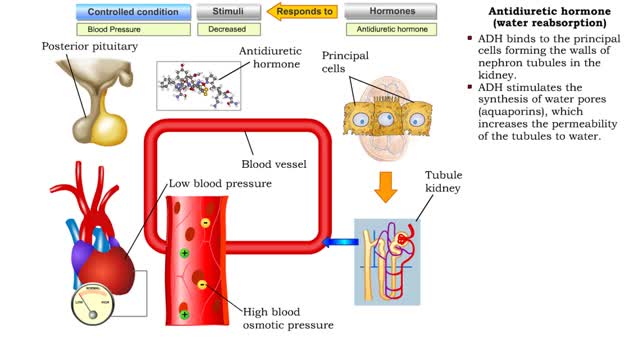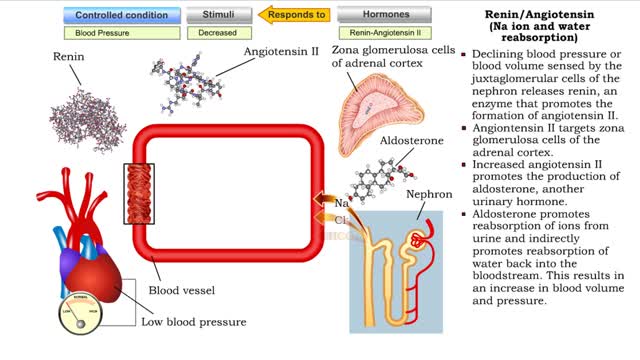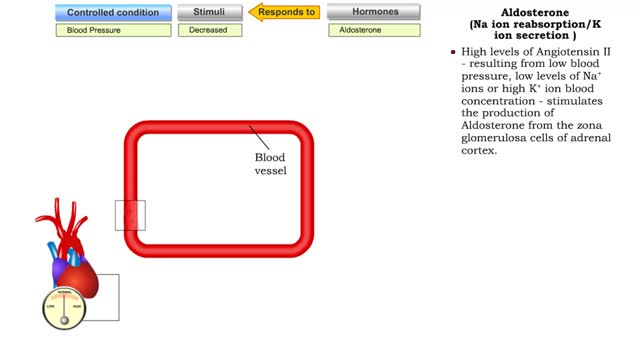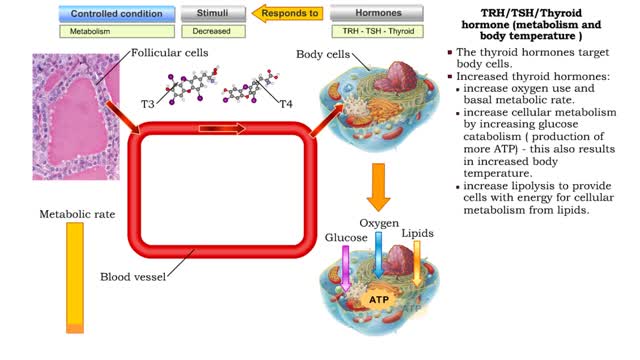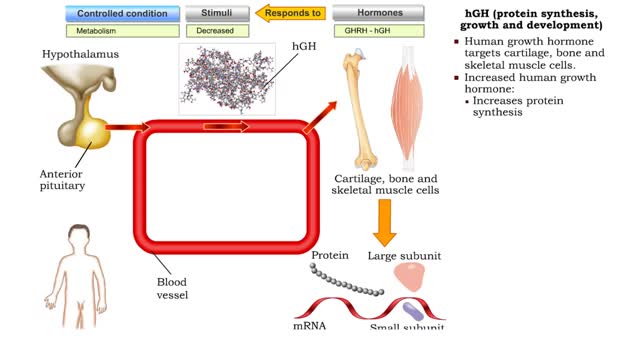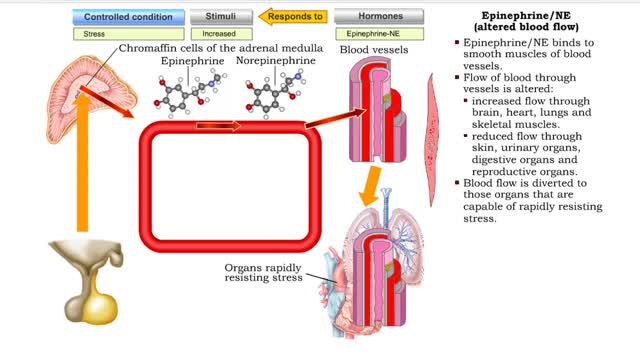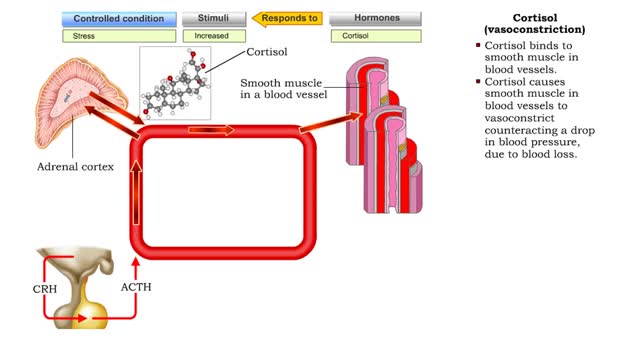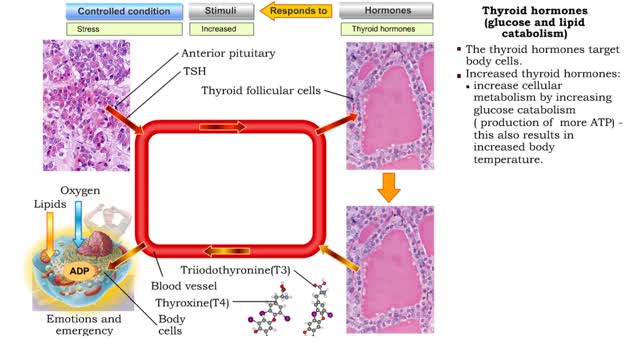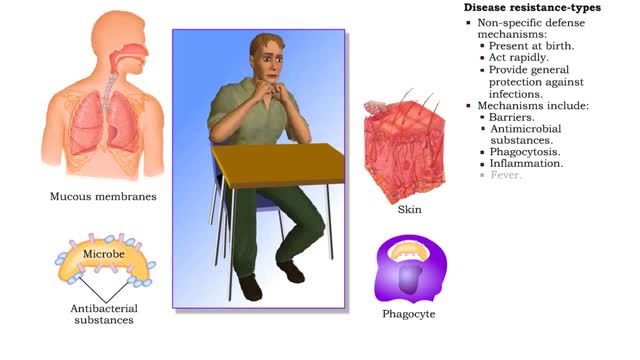Search Results
Results for: 'El'
Antidiuretic hormone (vasoconstriction, water reabsorption & sweat inhibition)
By: HWC, Views: 10795
• Dehydration, blood loss, and low amounts of water in the blood can cause blood volume and pressure to decrease. • Neurosecretoxy cells in the posterior pituitary release antidiuretic hormone(ADH). • ADH binds to smooth muscle cells in blood vessel walls, stimulating them to vasoconstr...
Renin/Angiotensin (water gain from urine & Na ion and water reabsorption)
By: HWC, Views: 10922
• Sensing declining blood pressure or blood volume, juxtaglomerular cells of the nephron release renin, an enzyme that promotes the formation of angiotensin II. • Angiotensin II targets smooth muscle cells in blood vessels that provide blood to the nephron. • Angiotensin II causes thes...
Atrial natriuretic peptide (vasodilation) & Aldosterone
By: HWC, Views: 10665
• Certain situations will cause the body's stress level to rise. • increased blood pressure will stretch the atria of the heart, stimulating the secretion of atria natriuretic peptide (MP). • ANP causes muscle cells in blood vessels to relax. • Blood pressure is lowered as a result ...
By: HWC, Views: 10535
Thyroid hormone production • A decline in metabolic rate caused by increased metabolic need or physical exertion stimulates the production of thyrotropin hormone releasing (TRH) hormone from the cells of the hypothalamus. • Thyrotropin hormone releasing hormone targets the thyrotrophic ce...
hGH (protein synthesis, growth and development)
By: HWC, Views: 11375
• Increased GHRH, a hypothalamic releasing hormone stimulated by low blood glucose, physical exertion, and increased sympathetic stimulation, stimulates the production of human growth hormone (hGH) from the somatotrophic cells of the anterior pituitary. • Human growth hormone targets cartil...
Epinephrine/NE (heart rate, altered blood flow, glycogenolysis & bronchodilation)
By: HWC, Views: 10805
• Stressors trigger increased sympathetic stimulation from the hypothalamus to the chromaffin cells of the adrenal medulla. • This causes the immediate release of epinephrine and norepinephrine (NE). • Epinephrine/NE binds to the cardiac muscles of the heart. • Cardiac muscle cells ...
Cortisol (protein catabolism, gluconeogenesis, vasoconstriction & anti-inflammation)
By: HWC, Views: 10673
• Stressors stimulate production of hypothalamic releasing hormones, corticotropin releasing hormone, hormone (CRH) and adrenocorticotropic hormone (ACTH) stimulate. • These hormones promote increased production of 1 cortisol from the zona fasciculata cells of the adrenal cortex. • Cort...
hGH, Thyroid hormones & Aldosterone
By: HWC, Views: 11080
Glycogenolysis and lipolysis • Stressors stimulate production of a hypothalamic releasing hormone (GHRH). • The releasing hormone stimulates somatotroph cells of anterior pituitary to secrete human growth hormone. • Human growth hormone targets liver cells and fat cells. hGH (glycog...
Types of disease resistance: innate defenses & immunity
By: HWC, Views: 11234
Our immune system protects us and helps fight off disease. Microorganisms, small microscopic organisms, and viruses are everywhere. Ever thought about how many are on that door you just opened? Many microbes and viruses can cause disease and are termed pathogens. Plants and animals have what i...
Advertisement



